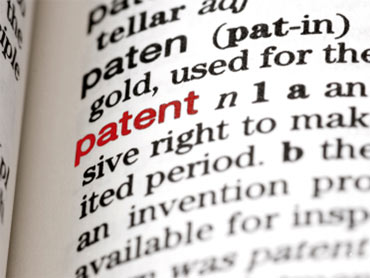Google and Barnes & Noble get serious about Android patent lawsuits


According to Focus Taiwan, Schmidt said, "We disagree with Microsoft that anyone needs to pay Microsoft a royalty fee for products they didn't build. I want to emphasize that Google built these products [Android and Chrome], not Microsoft. We tell our partners, including the ones in Taiwan, that we will support them."
It's not just Microsoft though that Schmidt is giving notice to that Google won't be sitting back in patent lawsuits. "For example, we have been supporting HTC in its dispute with Apple because we think that the Apple thing is not correct."
I also suspect it's because, as Google gets closer to sealing the deal that will bring it Motorola Mobility. Google will be able to use its Motorola Mobility patent arsenal against Android's enemies in the courtroom.
Thanks to the total failure of the patent system when it comes to software, litigation rather than innovation rules the mobile software market. With Motorola Mobility under its belt and Intel as an Android partner, Google has the bullets it needs to fight and win in this war.
One of Google's Android allies, Barnes & Noble, in particular seems to be spoiling for a bigger fight with Microsoft. Barnes & Noble has already been sued by Microsoft for its use of Android in its Nook e-readers and tablets and, in reply, Barnes & Noble accused Microsoft of attacking Android with its patent lawsuits.
That's all well and good and all typical of how mobile technology "competition" works in 2011 when those that can't do, sue. Recently though Barnes & Noble has asked the Department of Justice to investigate Microsoft's patent-licensing tactics.
Barnes & Noble said in an October 17 letter to Gene Kimmelman, the Justice Department's (DoJ) chief counsel for competition policy that had been drafted by Peter Barbur, of the law firm Cravath Swaine & Moore, that "Microsoft is embarking on a campaign of asserting trivial and outmoded patents against manufacturers of Android devices. Microsoft is attempting to raise its rivals' costs in order to drive out competition and to deter innovation in mobile devices."
If you think Barnes & Noble and Cravath may be over-reaching, you might want to consider that Cravath hired the DoJ's top anti-trust lawyer, Christine A. Varney, this summer. If they can't put together a creditable case that Microsoft is acting in an illegal anti-competitive matter, I don't know who can.
In another letter, from Barnes & Noble's general counsel Eugene V. DeFelice to James J. Tierney, chief of the DoJ's Networks and Technology Enforcement Section in the Antitrust Division, details Microsoft's method of pushing for a patent-licensing deal. DeFelice wrote that Microsoft accused Barnes & Noble of infringing on six patents at a July 2010 meeting.
"When Barnes & Noble asked Microsoft for more detailed information related to these patents, Microsoft refused, claiming that the information was confidential and could not be shared unless Barnes & Noble first executed a nondisclosure agreement." DeFelice claimed that "Microsoft's assertion of confidentiality is simply a means to cloak its oppressive and anti-competitive licensing proposal and is another element in Microsoft's larger scheme to restrict competition in the mobile operating systems market,"
Microsoft has replied "All modern operating systems include many patented technologies. Microsoft has taken licenses to patents for Windows and we make our patents available on reasonable terms for other operating systems, like Android. We would be pleased to extend a license to Barnes & Noble."
It looks to me like Barnes & Noble, and Android's parent company Google, have no interest in signing up for such a license anytime soon. The Android and mobile IP wars are heating up.
Related Stories:
B&N asks DOJ to investigate Microsoft
World's most profitable Android company? Microsoft!?
Microsoft's Samsung Android Patent Troll Win
Oracle vs. Google Android, Java lawsuit settlement talks will go no-where
Google and Intel Android pairing spells trouble for Microsoft